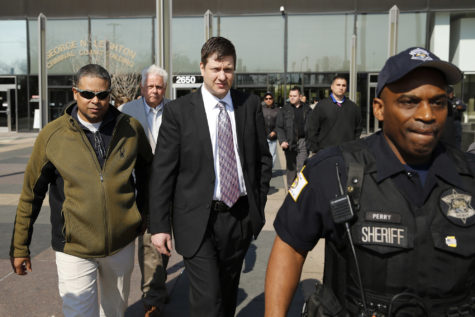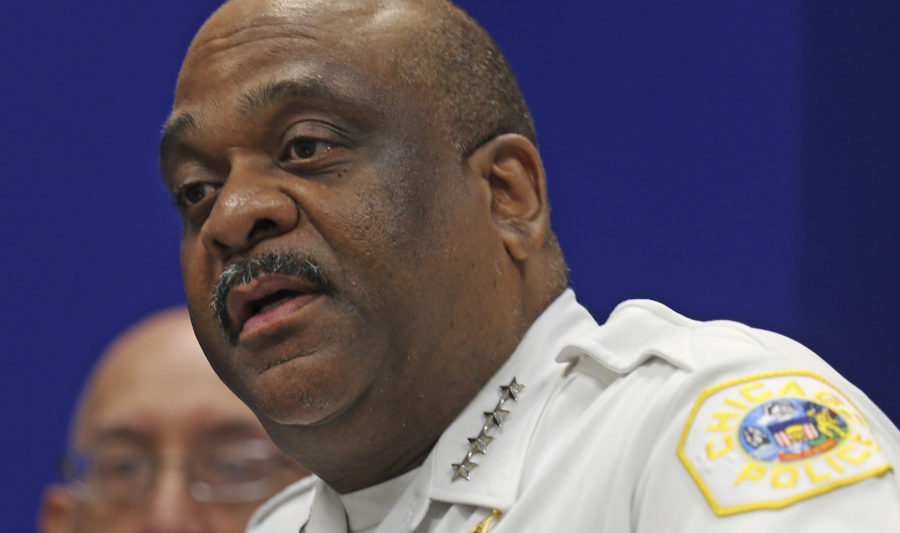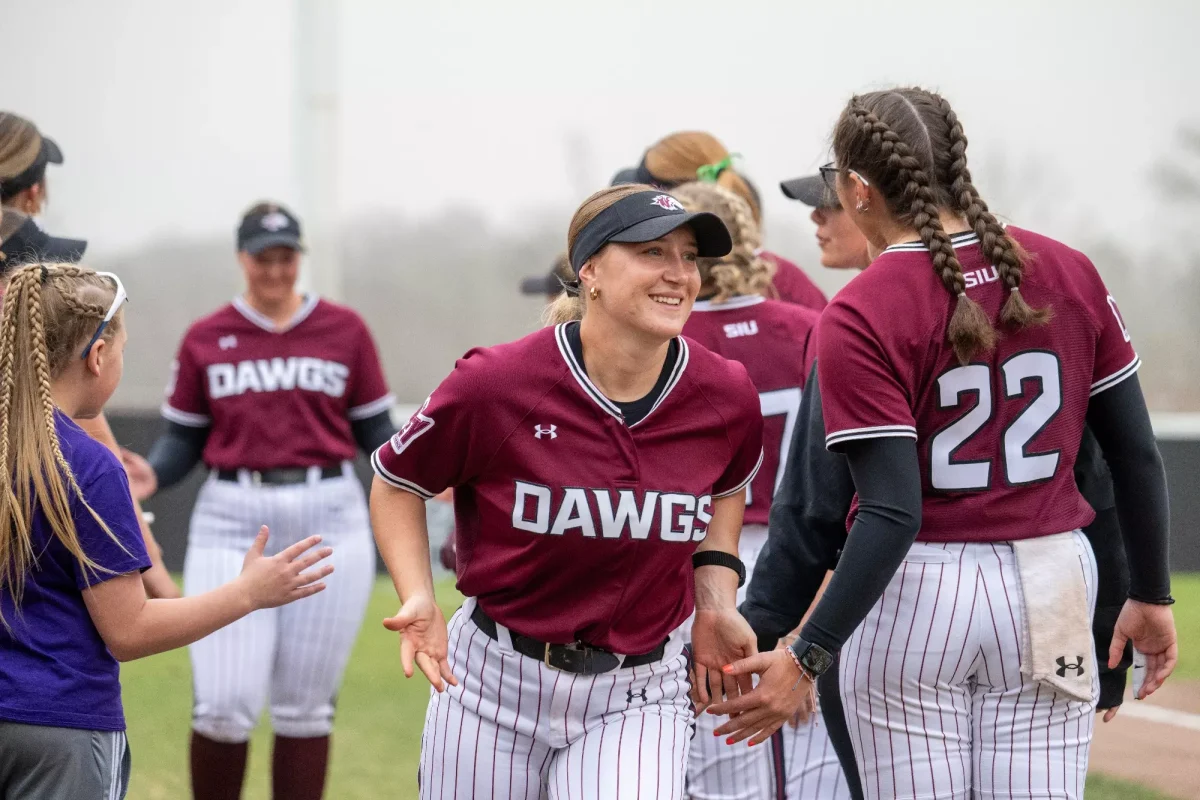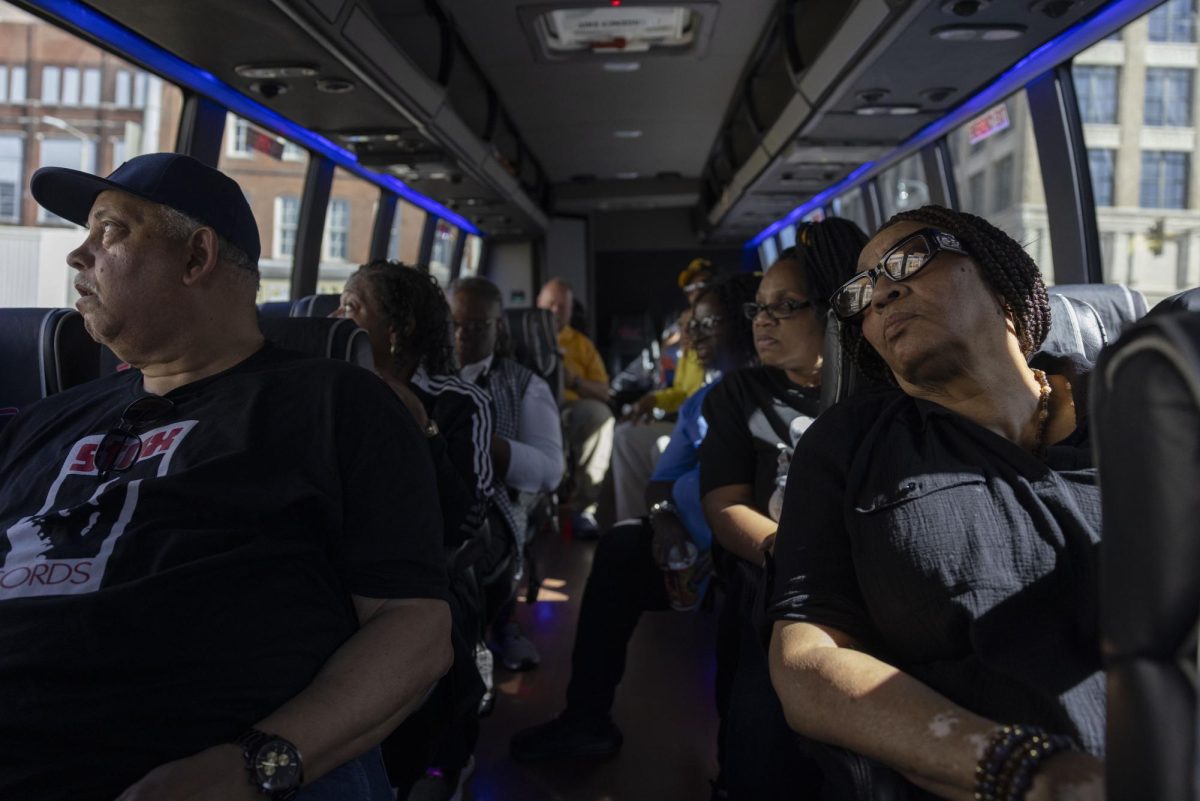Top Chicago cop seeks to fire 7 officers for lying about Laquan McDonald shooting
Chicago Police Superintendent Eddie Johnson discusses city violence at the Chicago Police Department Headquarters on Aug. 15. (Phil Velasquez/Chicago Tribune/TNS)
August 18, 2016
Chicago’s police superintendent has recommended that seven officers be fired for lying in the aftermath of the fatal shooting of Laquan McDonald in October 2014.
McDonald’s death was captured in a video that contradicted the accounts of officers. Superintendent Eddie Johnson emailed police Thursday morning, telling them that he had recommended seven officers be fired for making false statements.
He also stripped the officers of their police powers.
Advertisement
Johnson’s move came in response to Inspector General Joseph Ferguson’s recent report on the shooting in which he recommended that 10 officers be fired. But Johnson wrote that he felt the evidence against one of the officers was insufficient to recommend termination.
In addition, two other high-ranking officers retired during the city’s long-delayed response to the incident. A lieutenant involved in the department’s response to the shooting, Anthony Wojcik, retired in May; the deputy chief who ruled Van Dyke’s shooting in compliance with departmental policy, David McNaughton, retired this week, just as it became publicly known that the inspector general’s office had delivered its report.
The superintendent did not name any of the officers he is seeking to fire, but many of them were the patrol officers at the scene of the shooting.
“While I know that this type of action can come with many questions and varying opinions, please know that these decisions were not made lightly,” Johnson wrote to officers. “Each of these decisions was based on a methodical and substantive review of the facts by both internal and external counsel. Each officer will have their right to due process.”
“It is my belief that through these challenges we can take the lessons learned to become a better Department and in turn, give you additional resources to do your jobs effectively,” Johnson continued. “As I have said before, with every decision that I make, I always keep in mind the tremendous sacrifice, bravery, and commitment of every officer.”
The move to punish the officers is a long-awaited reaction to a shooting that has hung over city politics and driven broad changes in the Police Department and its oversight.
Mayor Rahm Emanuel’s office fought for much of a year to keep the video of the shooting under wraps, but a judge forced its release late last year. The video, which showed Van Dyke shooting McDonald repeatedly for several seconds after he already lay nearly motionless on the ground, inspired heated protests fueled by long-standing discontent among African-Americans about police conduct.
Advertisement*

Just as the city was forced to release the video, Van Dyke was charged with murder, and he awaits trial. He has been suspended without pay.
The U.S. Justice Department, meanwhile, is investigating whether Chicago police have systematically violated citizens’ rights. With the potential for the federal authorities to press reforms, Emanuel has tried to get ahead of the Justice Department by introducing or promising a raft of changes to training, discipline and equipment, among other areas.
Police shootings typically are investigated by the Independent Police Review Authority, which is known for running cursory investigations that have almost always cleared police, even when evidence suggested misconduct. But that agency’s leader — former federal prosecutor Sharon Fairley, who was appointed just after the controversy erupted — asked Inspector General Joseph Ferguson’s office to take over the inquiry, saying public confidence might have been lacking if her agency had led the investigation. The city’s move toward punishing the officers is only an early step in a process that could be time-consuming and contentious.
The Chicago Police Board rules on serious discipline for officers, and that body has often decided against the department in attempts to fire officers. Officers can also challenge Police Board decisions in court.
The controversy stirred by the video of Van Dyke shooting McDonald was compounded by the fact that numerous officers at the scene wrote reports that conflicted with the video, suggesting a collaborative effort to justify the shooting.
Van Dyke and at least five other officers reported that McDonald — who was wielding a knife — moved threateningly toward officers, even though the video shows he was walking away before the shooting. At least one officer said McDonald advanced on officers in a menacing way and swung his knife at them in an “aggressive, exaggerated manner.”
The video contradicts that claim. The initial police statements prompted police supervisors to rule McDonald’s death a justifiable homicide just hours after he was killed.
___
(c) 2016 the Chicago Tribune
Visit the Chicago Tribune at www.chicagotribune.com
Distributed by Tribune Content Agency, LLC.
Advertisement









